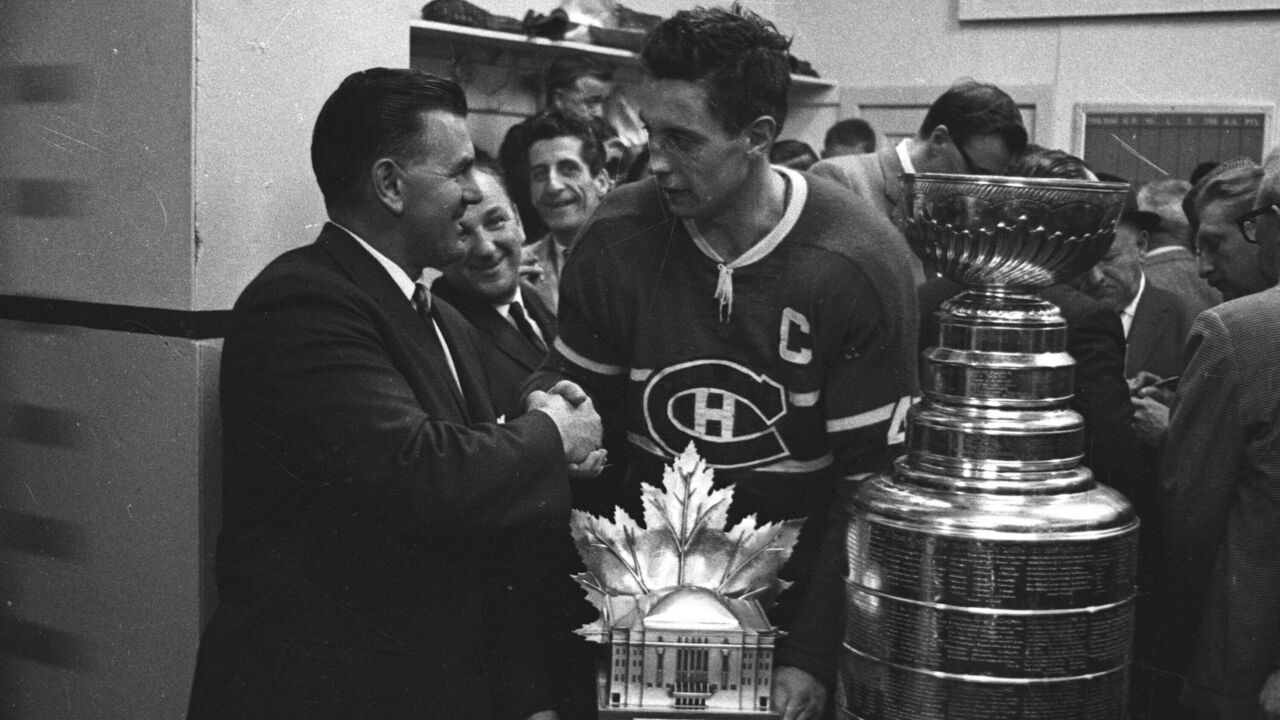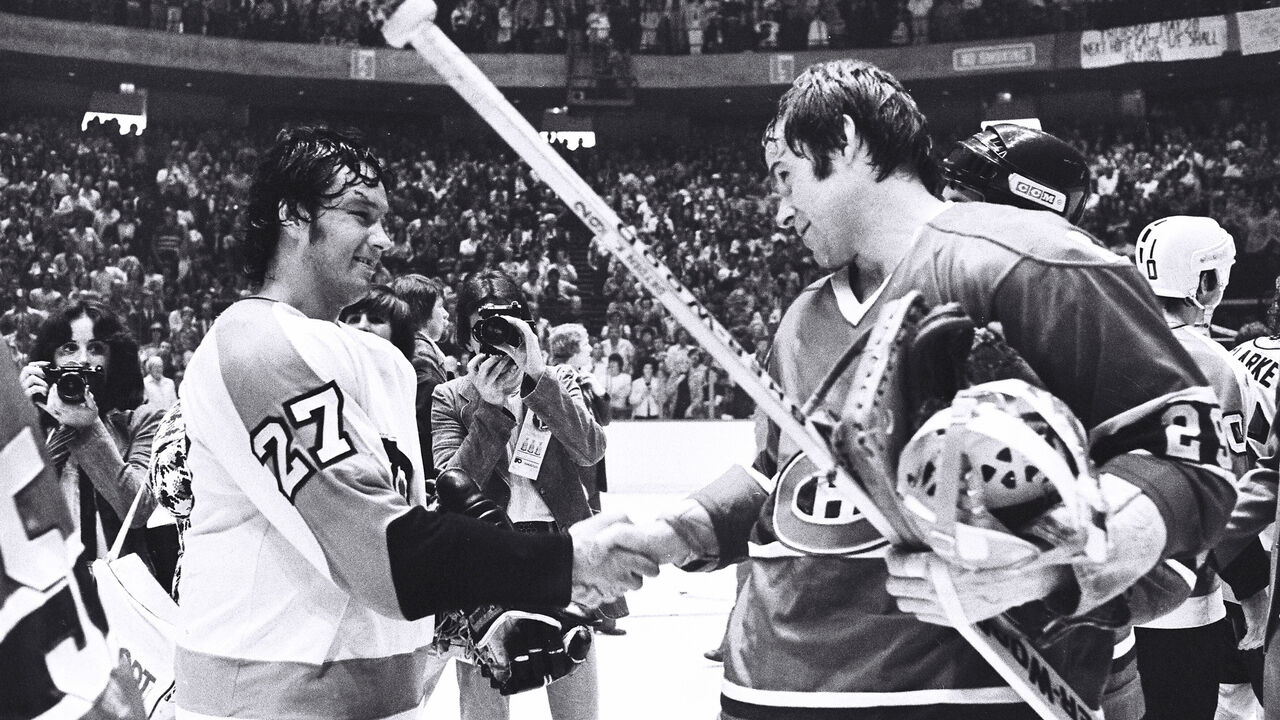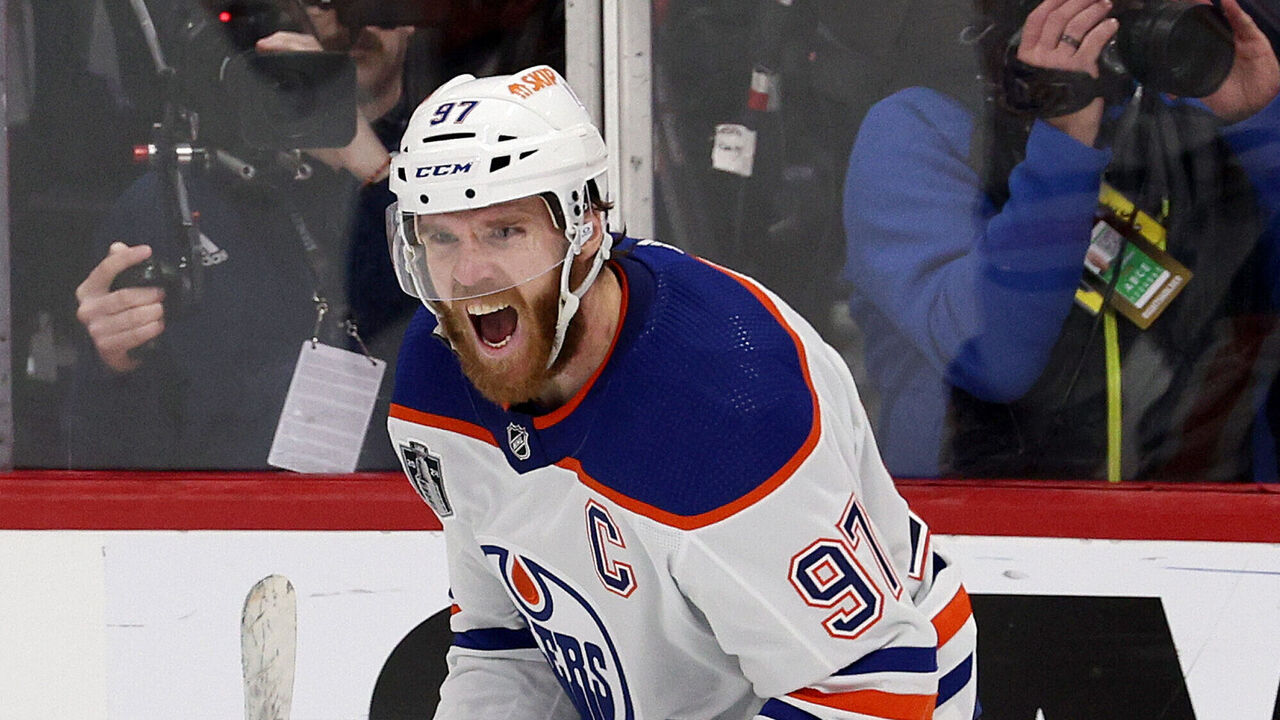Much was expected of Reggie Leach in 1976 when the Flyers entered the playoffs in search of their third consecutive Stanley Cup title. After leading the NHL during the regular season with 61 goals, his offensive firepower was crucial if the Broad Street Bullies were to add more hardware to their trophy case.
Leach understood the assignment. Through the first two rounds, he scored 15 goals in 12 games, including an astonishing five-goal performance against Boston, to tie Yvan Cournoyer's record set in 17 contests in 1973. The Cup chase was only three rounds then, so the Flyers would face Montreal in the final.
"It was just one of those years for myself that everything I shot went in," he said. "I felt like I was unstoppable at that time. It's all your confidence when you go into a game. That year was just unbelievable for myself."
But his heroics weren't enough: The Flyers were swept by the Canadiens. Leach added four goals to his total, though, establishing the record of 19 he still shares with Edmonton's Jari Kurri. Leach's exquisite effort might have been shuffled to the back pages of the record book if it wasn't for the stamp of permanence that came after the Canadiens lifted the Cup.

Leach was awarded the Conn Smythe Trophy for the most valuable player during the playoffs, the only time in NHL history that a skater from the losing team has received the trophy. Goalies from losing teams had won it before: Detroit's Roger Crozier in 1966 and Glenn Hall in 1968 with the Blues. Two more came after Leach: Ron Hextall in 1987 with the Flyers and Jean-Sebastien Giguere in 2003 with the Ducks.
"At the time, it wasn't a real big deal because of us losing to Montreal," Leach said. "With hockey, it's a team sport. When you lose, you lose together. But, after you retire, you look at stuff and you say, 'Oh my God, I did this, I did that.' That was the biggest thing after I retired."
History of the Conn Smythe Trophy
In the NHL's early years, there was one award to win - the Stanley Cup itself. But new accolades were added to the trophy case over time. In 1925, the Lady Byng Trophy was donated by its namesake to recognize the player who best exemplified good sportsmanship. In 1927, the Vezina Trophy was first awarded to the league's top goaltender. The Art Ross Trophy was first given to the regular season points leader in 1948. But, until the Conn Smythe's introduction in 1965, no honor existed to celebrate the playoffs' standout performer.
"They started awarding the Conn Smythe Trophy in 1965 and the reason would be because there was no award for the top player in the playoffs like there was in other sports," said hockey historian Paul Patskou. Named after the longtime Maple Leafs owner, general manager and head coach who donated the prize, the trophy was fittingly designed as a replica of Maple Leaf Gardens, then home to Toronto's team.

"The first winner was Jean Beliveau of Montreal in 1965. Of course, there was a big rivalry between Montreal and Toronto back then and it was kind of ironic that Beliveau would win something with a replica of the Leafs arena. But Beliveau was all class. That didn't bother him," Patskou says.
What did trouble some was the original voting process, which the papers at the time decried as "a farce." Voting was performed by the governors of the NHL's six teams, but the papers at the time claimed at least three of the governors did not attend even one game in the final series, instead appointing executives to vote in their place. Voting has since been left to the Professional Hockey Writers Association.

The Conn Smythe Trophy has been given to all positions - goalies, defensemen and offensive superstars. In its third year, it finally made its first appearance in Maple Leaf Gardens when forward Dave Keon won it in the Leafs' most recent Stanley Cup championship. "He didn't score a lot of points. But he did everything else," Patskou said. "And, for the first time, they didn't announce it that night. They announced the results the day after."
Sometimes the award has gone to veterans, other times to rookies. "An interesting one was in 1971 when Ken Dryden won it when he was still a rookie. He'd only played six regular-season games and he won the Conn Smythe before he even became a regular player," Patskou said. Dryden, in fact, won the Calder Trophy as rookie of the year in 1972.
But only once has it gone to the skater of a losing team. That might all change in the 2024 playoffs.
Could history repeat itself?
"The last two games, (Connor) McDavid was just unbelievable," said Leach, who thinks the Oilers captain will help push the series to a Game 7. "When I played, we didn't have all the fancy stickhandling and all that stuff - it was mainly a pass-and-shoot game. It's unbelievable is what it is. He's really determined to win the Cup."

In his quest to bring the Cup back to Canada for the first time in 30 years, McDavid leads all scorers with eight goals and 34 assists, totaling 42 points in 23 postseason games. He's collected eight of those points in the last two games as the Oilers faced elimination; he's the first player in NHL history to record consecutive four-point games in a Stanley Cup Final. He's 10 points ahead of teammate Leon Draisaitl in the scoring race and 20 points ahead of Matthew Tkachuk, the Panthers' top scorer. It's driven him top of mind among pundits and oddsmakers.
Almost 50 years after winning the Conn Smythe in a losing effort, that final-round defeat stings a little less for Leach, who is grateful for everything hockey has given him. "I think of who I am, being First Nation and making it to the National Hockey League and accomplishing my dreams and goals that I wanted to do as a youngster: having the opportunity to do it with the best players in the world and being recognized as one of the best players in the world for a couple of years," he said. "Hockey was just a just a stepping stone to who I am today. I'm the luckiest guy in the world that I got to play. It's a wonderful, wonderful experience to play professional hockey in the National Hockey League."
Jolene Latimer is a features writer at theScore.
Copyright © 2024 Score Media Ventures Inc. All rights reserved. Certain content reproduced under license.